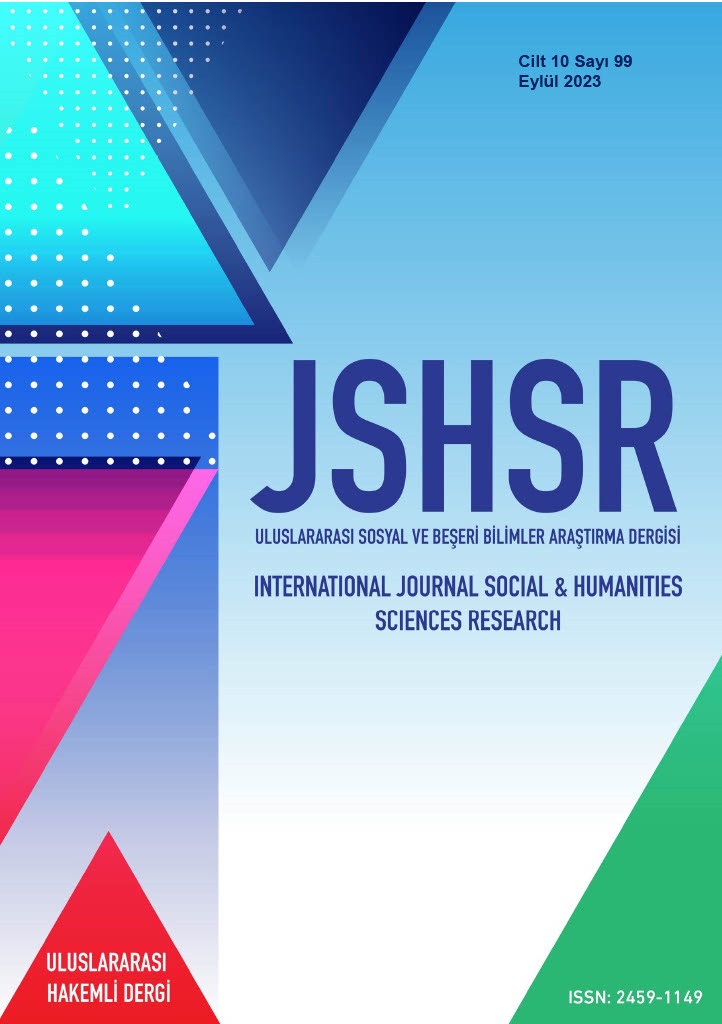Democratic Leadership
DOI:
https://doi.org/10.5281/zenodo.8396702Keywords:
Leader, Leadership, Democratic LeadershipAbstract
Leadership is the ability of a person to mobilize his place to reach a common goal, the power to direct and direct them. The leader is in the position of motivating the place where he is, a source of inspiration for the work he will do and the manager of the actions he will take. A democratic leader, on the other hand, is the person who allows all the people of his place to express their thoughts, make proposals and involve them in decision-making. Democratic leaders take care to exercise their managerial authority together with other people in their environment. The democratic leadership style, which aims to achieve the desired destination by acting together, not alone, aims to motivate people by working together, that they can achieve something and to inspire confidence. Democratic leaders give importance to the ideas of their employees when making decisions, and allow them to make proposals. In addition, in democratic leadership, the leader is an individual who knows the way to reach the goal he has determined, makes other suggestions in terms of technical issues, but is objective in his criticisms to the group without boring the individuals in the distribution of tasks while doing business.
References
Arıkan, S. (2001). Otoriter ve Demokratik Liderlik Tarzları Acısından Atatürk' ün Liderlik Davranışlarının Değerlendirilmesi. H.U. İktisadi ve İdari Bilimler Fakültesi Dergisi. 19 (1), s. 231-257
Atsız, O. (2018). Turizm İşletmelerinde Demokratik Liderlik. Yozgat Bozok Üniversitesi Dergisi, 5(2),219-241.
Bursalıoğlu, Z. (1991). Eğitimde yenileşme ve demokratik liderlik. Ankara Üniversitesi Eğitim Fakültesi Dergisi, 24(2), 669-675.
Choi, S. (2007). Democratic Leadership: The lessons of exemplary models for democratic governance. International Journal of Leadership Studies, 2(3), 243-262.
Derin, R. (2016). Demokratik Liderlik ve Örgütsel Sinizm İlişkisi: Balıkesir İli Merkez İlçeleri Örneği. [Yüksek Lisans Tezi]. Akdeniz Üniversitesi Sosyal Bilimler Enstitüsü
Dessler, G. (1988). Management. Prentice Hall, USA.
Erçetin, Ş. (2000). Lider Sarmalında Vizyon (2. Baskı). Nobel Yayın Dağıtım.
Eren, E. (2000). Örgütsel Davranış ve Yönetim Psikolojisi (6. Baskı). Beta Yayınları.
Eren, E. (2001). Örgütsel davranış ve yönetim psikolojisi (7. Basım). Beta Yayınları.
Genç, N. (2007). Yönetim ve organizasyon. Seçkin Yayınevi.
Joschke, G. (1975). "Kemalizm'in Temel Düşünceleri", Atatürk Devrimleri 1. Milletlerarası Sempozyumu Bildirileri, Sermet Matbaası.
Kopelman, R. E., Prottas, D. J., & Davis, A. L. (2008). Douglas McGregor’s Theory X and Y: Toward a Construct-Valid Measure. Journal of Managerial Issues, 20, 255-271.
Lunenburg, F. C. ve Ornstein, A. C. (2013). Eğitim yönetimi (Çev. Ed. G. Arastaman). Nobel Yayın Dağıtım.
Polatoğlu, Y. (2020). Demokratik liderlik bakış açısıyla: Tevfik İleri. Uluslararası Liderlik Çalışmaları Dergisi: Kuram ve Uygulama.
Sabuncuoğlu, Z. ve Tüz, M. (2008). Örgütsel Psikoloji. Alfa Aktüel Yayınları.
Terzi, A.R. ve Çelik, H. (2016). Okul Yöneticilerinin Liderlik Stilleri ve Algılanan Örgütsel Destek İlişkisi. Eğitim ve Öğretim Araştırmaları Dergisi. 5 (2), 87-98.
Tengilimoğlu, D. (2005). Kamu ve Özel Sektör Örgütlerinde Liderlik Davranışı Özelliklerinin Belirlenmesine Yönelik Bir Alan Çalışması. Elektronik Sosyal Bilimler Dergisi., 4 (5), 1-16.
Wach, E. & Ward, R. (2013). Learning about qualitative document analysis. IDS Practice Paper in Brief, 13, 1-11.
Woods, P. (2005). Democratic leadership in education. London: Sage Publications Company.
Yörük, D. ve Dündar, S. (2011). Türkiye’deki yerel yöneticilerin benimsedikleri liderlik tarzlarına göre boyun eğici davranışlarının incelenmesi. Atatürk Üniversitesi İktisadi ve İdari Bilimler Dergisi, 25(1), 93-106
Downloads
Published
How to Cite
Issue
Section
License
Copyright (c) 2023 INTERNATIONAL JOURNAL OF SOCIAL HUMANITIES SCIENCES RESEARCH

This work is licensed under a Creative Commons Attribution 4.0 International License.


